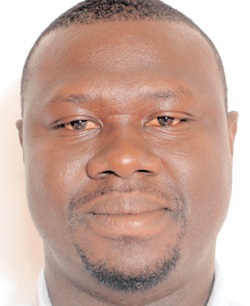Agya Kwaku is a writer, someone who tells stories with words. His pen moves across the paper, leaving a trail of ink that seem to come alive. But today, his pen stops as it is caught between two choices, the old way and the new.
His new way of writing was still political in nature but is said to be too romantic, too verbose, and too much above the ordinary man’s appreciation. Many who read his work loved this new style. But there were some, including Monsieur Appiagyei, the most ardent reader of this column, who did not like it; they said he had left behind the sharp words that used to make important people scared.
Agya Kwaku Ogboro’s old style was like a storm, full of anger and honesty. His writing was sharp, cutting through lies and corruption. Many people read his articles, and his words were heard by those in power. Yet, this audacious approach to the pen was not without its consequences; it brought with it a flurry of threats and many a restless night. However, to suggest that Agya Kwaku Ogboro was a coward would be a grave misrepresentation of his character. For in the face of adversity, he stood resolute, a beacon of courage and integrity in a sea of darkness.
Now, Ogboro has grown and chooses to act in a more mature way. He proves the words of the biblical Paul by showing that wisdom and calmness can also make a difference. He has decided to be wise and peaceful in his actions, continuing to fight for what is right but in a manner that reflects his growth and understanding. So, he asks you to watch as he finds his way. He wants to be more than just a writer of stories; he wants to change the world with his words. And as the ink flows, he hopes to find the answer. Is it romantically-political writing or the hard-hitting style? Maybe they are two sides of the same coin, bringing both passion and change. And as he writes, he builds a legacy of love and duty.
People in Accra who loved reading and talking about books were excited to hear about Agya Kwaku Ogboro’s new way of writing. His romantically-political style and his thoughts about politics got people talking in chop bars and outside under the sun. But now, it was the universities, the places where people study and learn.
At the University of Asomdwekrom, surrounded by green plants and paths made of red earth, Agya Kwaku stood in front of a room full of excited students. The classroom was buzzing with energy – everyone was ready to learn. He fixed his jacket and started talking. “Hello everyone, today, we’re going on a trip with words. We will go from the Volta River to the busy streets of Accra. We will use words, their strength, their beauty, and their power to change lives.”
He told stories about love and missing someone, about watching the sun go down at Cape Coast Castle, and about Adinkra symbols that are a big part of Asomdwekrom’s identity. His pen moved on the blackboard, writing down feelings and memories. The students wrote down everything he said, like it was made of gold. “Remember,” he said, “books aren’t just a way to escape. They show us our own struggles and successes. When you write, write with passion. Write with the heartbeat of our ancestors.”
Far away in Obroniland, Agya Kwaku stood in a classroom at an Ivy League University. The air smelled like old books and new chances. The walls covered in ivy had secrets, and the students, full of energy and coffee, listened closely. “Hello everyone, today, we will cross borders in our minds. We will jump over oceans and continents with our imaginations. Books and stories are the same everywhere as they speak to our souls.”
He talked about Asomdwekrom’s fight for freedom and the speeches of Kwame Nkrumah that we still remember. He read poems that reminded everyone of palm wine and ‘sobolo’, and he talked about politics in a smart way. The students wrote everything down on their computers, which glowed like stars. “Remember,” he said, “writing isn’t something you do alone. It’s a conversation between people and cultures. When you write, write with kindness. Write to understand others, to close gaps, to build bridges.”
Agya Kwaku Ogboro has become like a bridge, showing the power of words. His pen, which used to be torn between fighting for change with biting words and romanticising political stories now mixes both into a beautiful picture that reaches across the world. He moved easily from love poems to political talks, from the busy markets of Accra to the tree-lined streets of New Haven.
As he left the classrooms, the sun touched his forehead. His pen, now calm, shared secrets with the wind. And Agya Kwaku understood that he didn’t have to choose, he could be a poet and someone who challenges people, both in Asomdwekrom and in any part of the world.
In the end, it wasn’t so much the style that made him special; it was the ink that came from his heart, marking the pages of history. And whether in Accra or New Haven, the students would remember his words, with their minds bright and their souls glowing.
See you next week for another interesting konkonsa, Deo volente!


